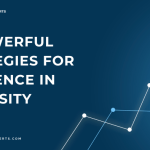Table of Contents
- Introduction
- 1. Embracing Challenges
- 2. Building Emotional Strength
- 3. Cultivating a Positive Mindset
- 4. Enhancing Problem-Solving Skills
- 5. Fostering Healthy Relationships
- 6. Increasing Adaptability
- 7. Developing a Growth Mindset
- Conclusion
- FAQs
Introduction
Resilience is often described as the ability to bounce back from setbacks, but it’s much more than that—it’s a cornerstone of personal growth. Whether you’re navigating life’s challenges or striving to improve yourself, resilience plays a vital role in shaping who you are. In this blog, we’ll explore seven ways resilience fuels your personal growth journey, helping you not only survive but thrive.
1. Embracing Challenges
Resilience encourages you to face challenges head-on rather than avoiding them. Viewing obstacles as opportunities fosters personal development.
Why It Matters
Facing challenges builds character and enhances your problem-solving skills. According to the American Psychological Association, confronting adversity can lead to increased resilience and a greater sense of self-efficacy. This aligns with the insights from 10 powerful techniques to cultivate a positive mindset, which highlight the importance of reframing challenges positively.
Visual Element:
Challenge Resilience Response Job loss Seek new opportunities Relationship issues Learn communication skills Health problems Adopt a healthier lifestyle
By embracing challenges, you learn valuable life lessons that pave the way for future success.
2. Building Emotional Strength
Resilience is closely tied to emotional intelligence, which involves understanding and managing your emotions effectively. By developing emotional strength, you enhance your capacity to deal with stress and adversity.
Practical Steps
- Practice self-awareness: Reflect on your feelings and reactions.
- Develop coping strategies: Use techniques like mindfulness or journaling to process emotions.
Research from the University of California highlights that individuals with high emotional intelligence tend to navigate challenges more effectively, leading to personal growth. For more on emotional intelligence, check out understanding emotional intelligence: key insights & benefits.
3. Cultivating a Positive Mindset
A resilient person often possesses a positive mindset, viewing failures as temporary setbacks rather than insurmountable obstacles.
Benefits of Positivity
- Increased motivation: Positivity fuels your drive to reach goals.
- Better health: Studies show that a positive mindset can improve physical health and reduce stress.
To cultivate this mindset, try techniques like gratitude journaling or positive affirmations. Regularly practicing gratitude can shift your focus from problems to possibilities, significantly impacting your growth journey. Explore more about positive thinking techniques in 10 positive thinking techniques to reduce stress.
4. Enhancing Problem-Solving Skills
Resilience teaches you how to think critically and creatively when faced with challenges.
How It Works
- Analyze the situation: Break down the problem into manageable parts.
- Explore solutions: Consider multiple avenues before taking action.
The ability to solve problems effectively can lead to more significant personal growth opportunities. According to a study published in the Journal of Applied Psychology, resilient individuals are better equipped to handle stress and find solutions, fostering a sense of achievement.
5. Fostering Healthy Relationships
Resilience isn’t just an individual trait; it also enhances your ability to build and maintain healthy relationships.
Key Aspects
- Effective communication: Resilient people tend to express their thoughts and feelings more openly.
- Empathy: Understanding others’ emotions can strengthen bonds.
Building a support network is crucial for resilience. Research from the Mayo Clinic shows that strong relationships can help buffer stress and promote emotional well-being, making them instrumental in your growth journey. For insights on how positive thinking transforms relationships, refer to 10 ways positive thinking transforms your relationships.
6. Increasing Adaptability
In a world that is constantly changing, adaptability is a crucial skill. Resilience nurtures your ability to adjust to new circumstances and challenges.
Why Adaptability is Essential
- Career growth: Being adaptable can open up new career opportunities.
- Personal development: Flexibility allows for exploration of new interests and skills.
According to a report by the World Economic Forum, adaptability is one of the key skills for the future job market. By cultivating resilience, you prepare yourself to embrace change rather than resist it. This adaptability is also connected to cultivating a positive mindset, as discussed in 10 daily habits to boost your positive mindset.
7. Developing a Growth Mindset
A growth mindset, popularized by psychologist Carol Dweck, is the belief that abilities can be developed through hard work and dedication. Resilience is a fundamental part of this mindset.
How to Foster a Growth Mindset
- Embrace challenges: See them as opportunities to learn.
- Persist in the face of setbacks: Understand that failure is part of the learning process.
Individuals with a growth mindset are more likely to achieve their goals, seeing effort as a path to mastery. Research shows that fostering this mindset can lead to greater academic and professional success. For further exploration, consider 10 ways positive thinking fuels personal growth journey.
Conclusion
Resilience is a powerful force that can fuel your personal growth journey. By embracing challenges, building emotional strength, cultivating a positive mindset, enhancing problem-solving skills, fostering healthy relationships, increasing adaptability, and developing a growth mindset, you set the stage for continuous improvement and fulfillment in life.
FAQs
Q1: How can I start building resilience?
A1: Begin by setting small goals and gradually facing challenges. Practice self-care and develop a strong support network.
Q2: Is resilience a natural trait or can it be developed?
A2: While some people may be naturally more resilient, it is a skill that can be cultivated through practice and experience.
Q3: Can resilience help in professional settings?
A3: Absolutely! Resilience enhances problem-solving, adaptability, and teamwork, which are essential in the workplace.
Q4: What are some books on resilience?
A4: Some highly recommended books include “The Resilience Factor” by Karen Reivich and Andrew Shatté, and “Grit: The Power of Passion and Perseverance” by Angela Duckworth.
For further reading, check out the American Psychological Association and Mayo Clinic’s strategies for building resilience.
By nurturing resilience, you empower yourself to navigate life’s challenges with confidence and grace, paving the way for a fulfilling personal growth journey.



